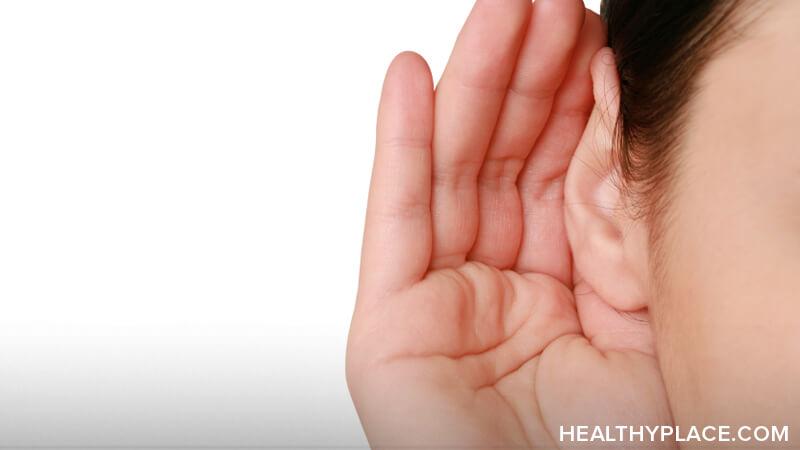ADHD and Auditory Processing Disorder

About half of those with attention-deficit/hyperactivity disorder (ADHD) struggle with auditory processing disorder (APD).1 Their sense of hearing may be fine, but they can have a hard time making out what someone is saying. I have always struggled to follow conversations in noisy areas and was interested in learning more about how this phenomenon relates to ADHD.
What Is Auditory Processing Disorder?
A person with APD has trouble distinguishing sounds, such as “da and ga.”1 Like ADHD, which impacts someone’s working memory, APD can affect an individual’s auditory memory and ability to process language ("Language Disorder: Signs, Symptoms, Causes, Treatment"). The person might be highly sensitive to noise and have trouble listening and even speaking, reading, or writing.
Someone with APD and not ADHD should be able to focus in quiet environments, but symptoms of the two conditions overlap and intertwine. Having ADHD affects one’s ability to process sounds. We are often sensitive to various sensations, such as scratchy tags or loud noises, and can be easily distracted by a conversation across a room2 ("Sensory Processing Disorder"). (Alternately, if we hyperfocus on something, we might block out important sounds.)
Symptoms of ADHD and Auditory Processing Disorder
Several of my family members, some of whom do not have ADHD, frequently find themselves asking others to repeat themselves. We all do this, but some people do it more than others. More severe symptoms than my own might prevent someone from participating in music groups or retaining spoken instructions.
Still, my own auditory processing issues can be frustrating. I find customer service to be quite a challenge, especially over the phone. Strong accents and bad connections make it particularly hard to quickly process and solve customer inquiries.
I recently started (and soon left) a job that involved speaking to people over a headset in a large, open office. My headset had only one earpiece (the other piece awkwardly pressed into my ear; the person sitting next to me happened to have a headset with two earpieces). When I asked to confirm that only one earpiece worked, my supervisor stared at me and stated, “Yes, because you only need one ear to hear.”
Treatment for Auditory Processing Disorder
It seems as though ADHD medication does not improve APD,1 but studies are still being done. The condition is tested by audiologists and mostly treated by training the brain through practice. It is most effective when the brain is still developing, but, hopefully, similar methods could help adults. Specific computer programs, speech therapy, and audiologists are all resources for improving auditory memory and sound discrimination.
Even knowing that you have auditory processing issues can enable you to take steps to advocate for yourself and set up appropriate learning and working environments, when possible. I still wish that there were more information on treatments for adults. In the comments, please let me know if you have similar problems with listening comprehension and if you have any words of advice.
Sources
- Scherer, Priscilla, “Could Your Child Have Auditory Processing Disorder?” ADDitude. Accessed Jan. 2019.
- Green, Rick, “4 Odd Things That Freak out My Adhd Brain.” TotallyADD Accessed Jan. 2019.
APA Reference
Matteson, N.
(2019, January 8). ADHD and Auditory Processing Disorder, HealthyPlace. Retrieved
on 2025, November 30 from https://www.healthyplace.com/blogs/livingwithadultadhd/2019/1/adhd-and-auditory-processing-disorder
Author: Noelle Matteson
Wow! As someone else said. I too have been for hearing tests and passed with flying colours, yet I really struggle with conversations, mainly in noisy environments. I've recently discovered that I have adhd and this makes so much sense. Suddenly I'm understanding the difficulties in my life, hopefully I can now find some solutions.
Wow! I just discovered what I have been suffering from almost all my life. One point in my life, I got a hearing test thinking I had difficulty hearing but I passed the test with flying colors so I remember the nurse saying I might have a comprehension issue and never really thought about it but every symptom that I have read on this article is everything I have experienced
I do not know if they would help for sure, but apparently they can help block out background noise and help pinpoint the direction of certain sounds. Thank you for the suggestion, and I would keep researching!
Great Article. I have a difficult time with spoken comprehension and wondering if hearing aids are benefitial. Do they block out background noise?